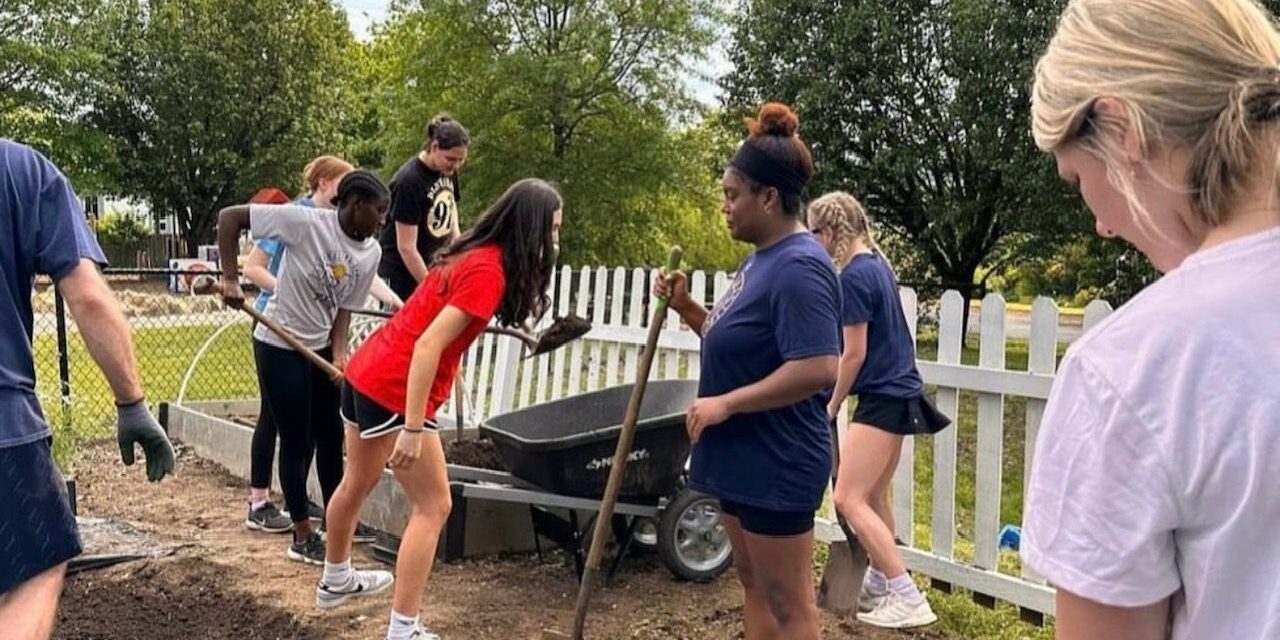Search Posts
Recent Posts
- How Does Our Garden Grow? With Love From Our Volunteers April 10, 2024
- Jim Chesney, Volunteer Extraordinaire March 28, 2024
- West Glow Farms Partnership with The Heimerdinger Foundation March 28, 2024
- A Love of Food Led to Food Being a Way to Love February 19, 2024
- From Debilitating Diagnosis to Amazing Adventures Once Again November 18, 2023
Categories
Subscribe!
Thanks for subscribing! Please check your email for further instructions.

How Does Our Garden Grow? With Love From Our Volunteers
Meals 4 Health and Healing is excited to expand by adding raised garden beds to our new campus. These beds will enhance our teen education programs and teach teens the importance of eating fresh and organic foods. By working together in the garden, the teens will also develop a sense of community and teamwork skills.
The first two new beds were built and funded by Vanderbilt students who share our mission of providing organic, nutrient-dense meals to people undergoing cancer treatment. These beds are now managed by our teen volunteers and are filled with greens, including three types of spinach, Swiss chard, and collards. The Nashville Herb Society has also granted us funds to add several new raised beds for growing herbs in May, which will be used for education and to enhance the taste of our meals. In June, we are thrilled that one of our teen volunteers will be building six patio beds on our campus for growing more vegetables and herbs, as part of his Eagle project.
Our “Giving Garden” is another teaching garden on the Calvary Methodist Church campus. Teen volunteers, as well as volunteers from Exceptional Education students at Lawson High School and Friends Life, tend to the seedlings. These programs are designed to enhance the lives of adults and youth with disabilities, and they use their skills to grow food for our mission. This year, the Giving Garden will provide a wide variety of fresh produce, including kale, spinach, collards, Swiss chard, beets, yellow squash, zucchini, six different types of tomatoes, four types of cucumbers, pattypan squash, delicata squash, and herbs. These gardens are a testament to the power of community and how it can come together to make a positive impact on people’s lives.
As the season warms up, we would like to offer some organic gardening tips to help you get started:
1. Choose the right location: It’s important to pick a spot in your yard that gets plenty of sunlight and has good drainage. Avoid areas that are shaded or prone to flooding.
2. Start with healthy soil: Before planting anything, make sure your soil is in good condition. Add compost or organic matter to improve soil structure and provide essential nutrients.
3. Plant companion crops: Certain plants can help each other grow by repelling pests or providing necessary nutrients. For example, planting marigolds next to tomatoes can help deter pests.
4. Water deeply and infrequently: Watering deeply encourages plants to grow deep roots, which can help them survive droughts. Watering infrequently also helps prevent overwatering, which can lead to root rot.
5. Use natural pest control methods: Instead of using harmful pesticides, try natural pest control methods like companion planting, using insect-repelling herbs, or manually removing pests from plants.
